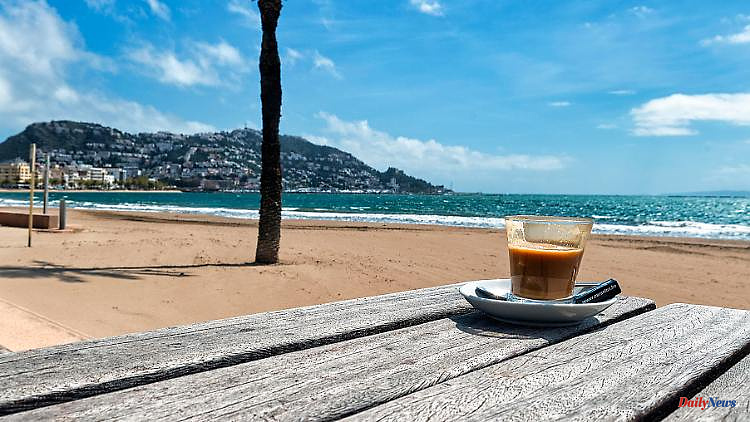Imagine the tourists come in droves, but no one wants to entertain them. After two Corona summers, Spain's innkeepers in the strongholds of mass tourism are plagued by new worries: Despite high unemployment, they can't find any staff.
In normal times and especially after the long lull caused by the corona pandemic, Pablo González would never have thought of closing his restaurant in midsummer. But this year the owner of the "Taberna Andaluza" in Benidorm has to do just that, at least for one day a week. He simply lacks the staff: "I advertised on the Internet, asked everywhere - so far in vain."
It will soon be high season in Benidorm, one of the strongholds for mass tourism on Spain's Costa Blanca. But González can't really be happy, because important income is lost again. His restaurant seats 120 guests, but he's missing two of the 16 waiters he needs for a full seven-day week. "At some point, my staff will have to rest," he says, shrugging his shoulders in resignation.
The situation is similar in Benidorm's other restaurants and bars: Whether waiters, cooks, bartenders or dishwashers - there is a lack of staff everywhere. "Actually, it looks like a great summer," says Alex Fratini while watching the tourists on the terrace of his café. In all, he runs eight bars in Benidorm, and he's short of staff everywhere. "We've always had problems finding staff, but it's never been this bad," says Fratini. "Two weeks ago we invited ten people for an interview. Nobody came. Nobody!"
Diego Salinas, from Benidorm's Abreca restaurant and bar association, estimates that around 1,200 positions are unfilled. He sees several reasons for this, but above all the after-effects of the pandemic: Many former employees looked for other jobs during the Corona crisis and are now not coming back. Added to this is the lack of affordable housing, because many vacant apartments have now been converted into expensive holiday apartments.
Union rep Francisco Giner, himself a hotel employee, said many hospitality workers have found during the lockdown that they are reluctant to return to their "poorly paid" jobs, which often find it difficult to find "miserable working conditions". are compatible with family life.
Lucía Camilia, a former waitress from Barcelona, agrees. "You have to work weekends, you miss birthdays and you're not valued very much," she says. Added to this is the general job insecurity in the sector. Before the pandemic, Spain was the second most popular travel destination in the world after France, with tourism contributing 12.4 percent to Spanish economic output. But the growing shortage of staff is not only affecting Benidorm, but the entire industry from the Balearic Islands to the Costa Brava.
According to information from employers' associations, around 50,000 jobs are vacant - and that with an unemployment rate of 13.65 percent in Spain. Madrid's left-wing government is aware of the problem, and a few days ago it announced easing of the hiring of foreign workers. However, the fact that Labor Minister Yolanda Díaz also encouraged the industry to pay higher wages annoyed many employers.
Café owner Fratini points out that a wage increase of 4.5 percent has just been agreed with the unions. "If wages were the problem, the market would adjust. Then those who pay more would have more workers," he says. But that is not the case. Restaurant owner Ángela Cabañas now offers seasonal workers up to 2,000 euros a month for the kitchen. In vain: "If there are no workers, then there are none." Frustrated, she has now given up - and will only open the bar this summer.












